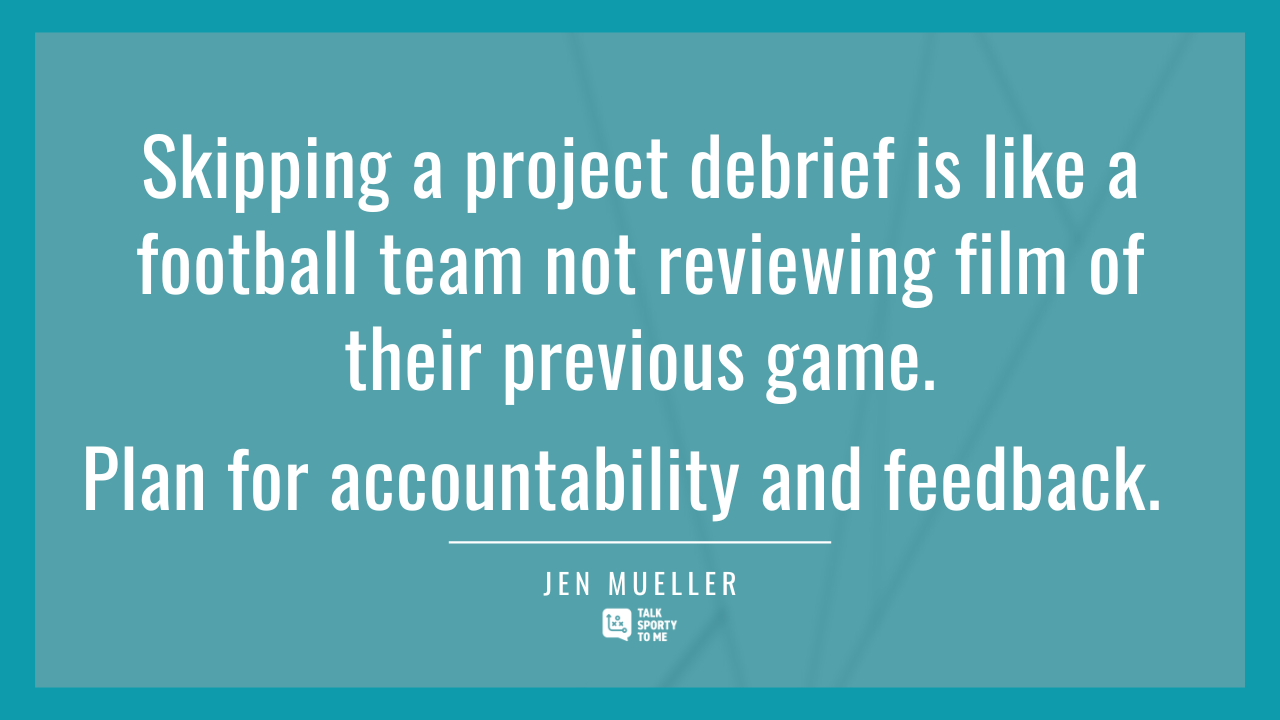Don't Skip the Project Debrief

If the last thing you want to do after finishing a project is a debrief, I get it.
I’m not particularly fond of re-watching past TV shows/segments I’ve produced. When I’m done, I’m done and I’m ready to move on. Except that’s not a game plan for success. Sports gives us a great example and reminder of that.
As the sideline reporter for the Seattle Seahawks I can tell you that every Monday is “Tell the Truth Monday” at the Seahawks facility. Everyone reviews film, (Yes, I know it’s not actual film, but they still call it film study.) They highlight the successes, study the failed plays and have honest conversations about what went right and what went wrong because the film, as they say, doesn’t lie. I’ve covered more than 250 games for the Seahawks, including outcomes you don’t want to talk about much less re-live on Monday, but they do it anyway because it’s one of the ways you get better.
Let’s bring this back to business. NFL teams have weekly projects. We call them games, but you could just as easily think of it as a high-stakes project every week.
Skipping a project debrief would be the equivalent to a sports team not watching the film of their previous game.

It’s ridiculous to think the team will improve without that self-reflection and accountability. It’s also hard to imagine them functioning like a team.
An NFL roster is the largest of any professional sport. It’s also one of the most siloed. There's offense, defense and special teams. There are coaches for each of those groups and smaller position groups within those categories. For example, offense includes quarterbacks, running backs, wide receivers and offensive line. Each position groups holds their own meetings and separates out to do their own work in practice.
It's very easy for an NFL team to become segmented and disconnected. Weekly debriefs on “Tell the Truth Monday” help address frustrations that could fracture a team. When a major breakdown happens and the offense fails to score points and wastes and incredible performance from the defense, it’s addressed within hours of that outcome.
The performance of the team and satisfaction of the team members are directly tied to weekly debriefs. They might not want to talk about a game, but skipping the conversation doesn’t improve the situation. And it’s worth noting that even when a coach talks about a loss and says they’re going to “flush it and move on” they still review the film.
This is just one of the communication lessons you can take from sports when you start Thinking Outside the Box Scores. Subscribe on YouTube for weekly videos and insights.


